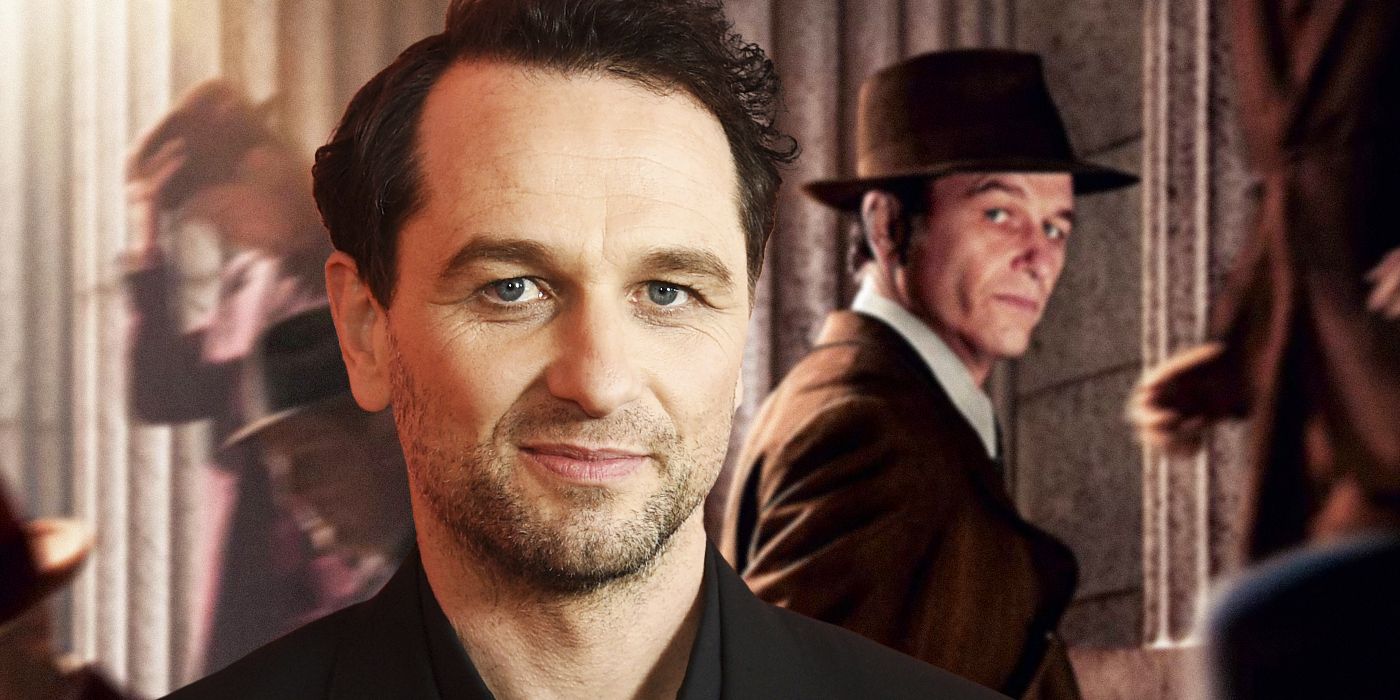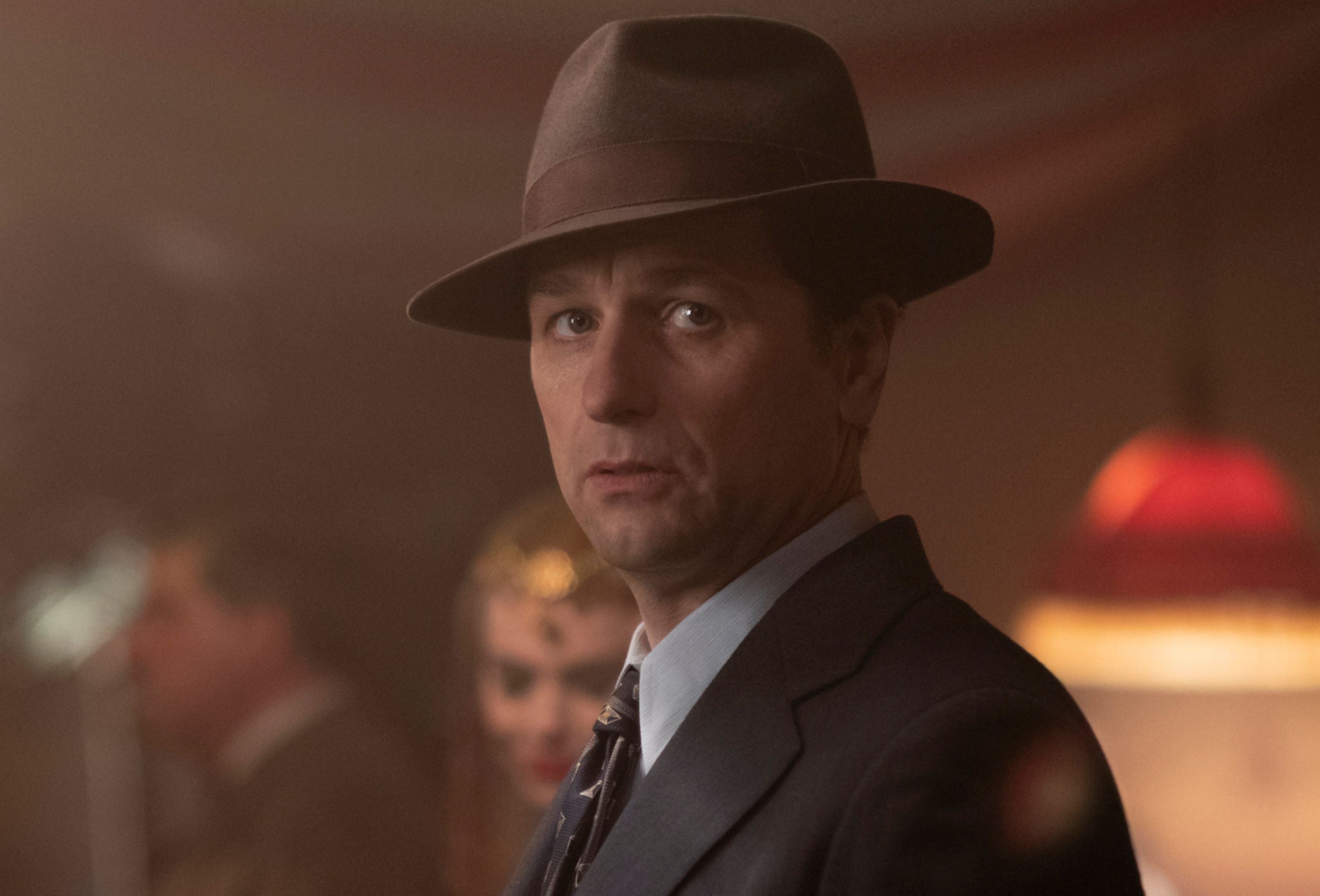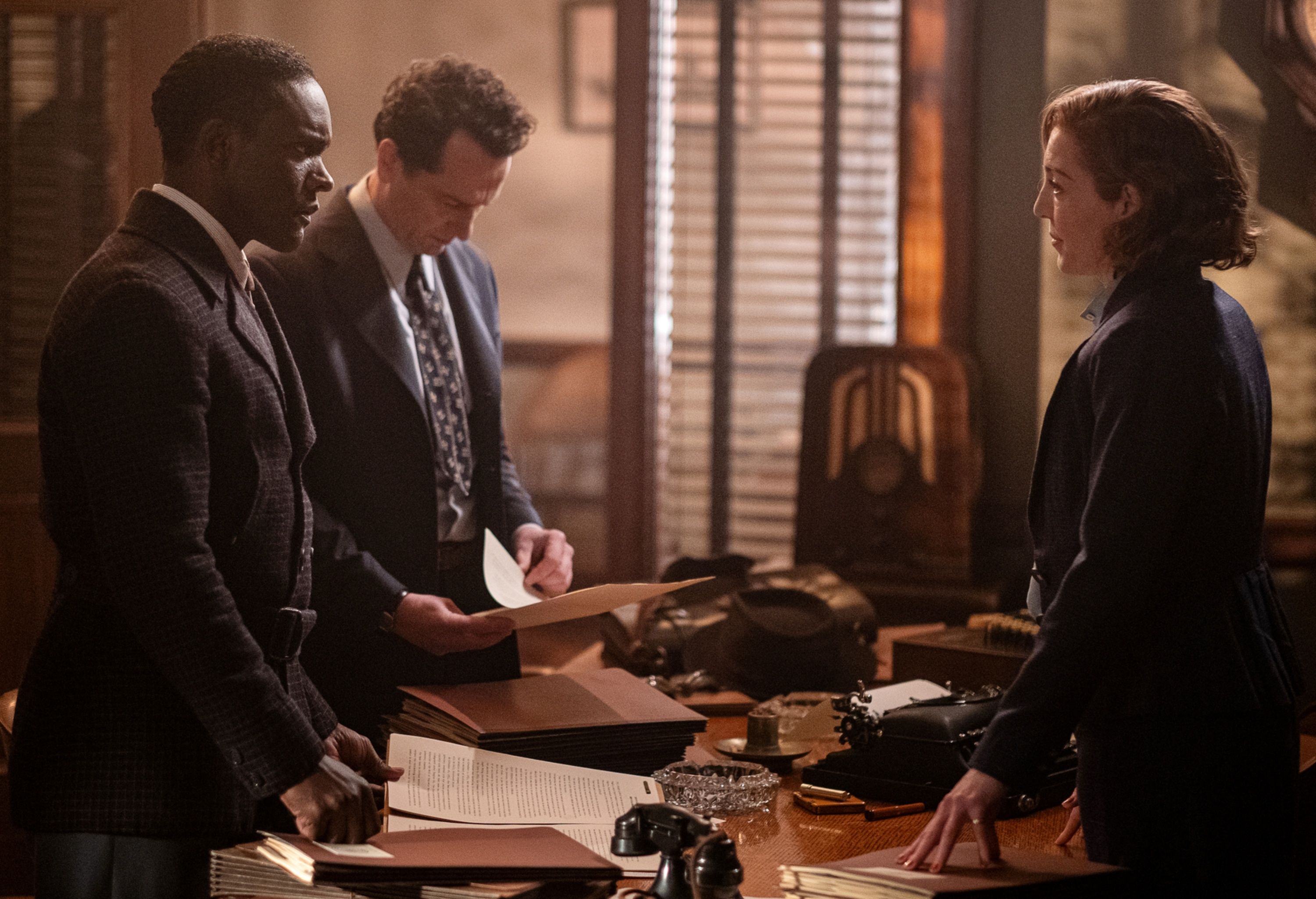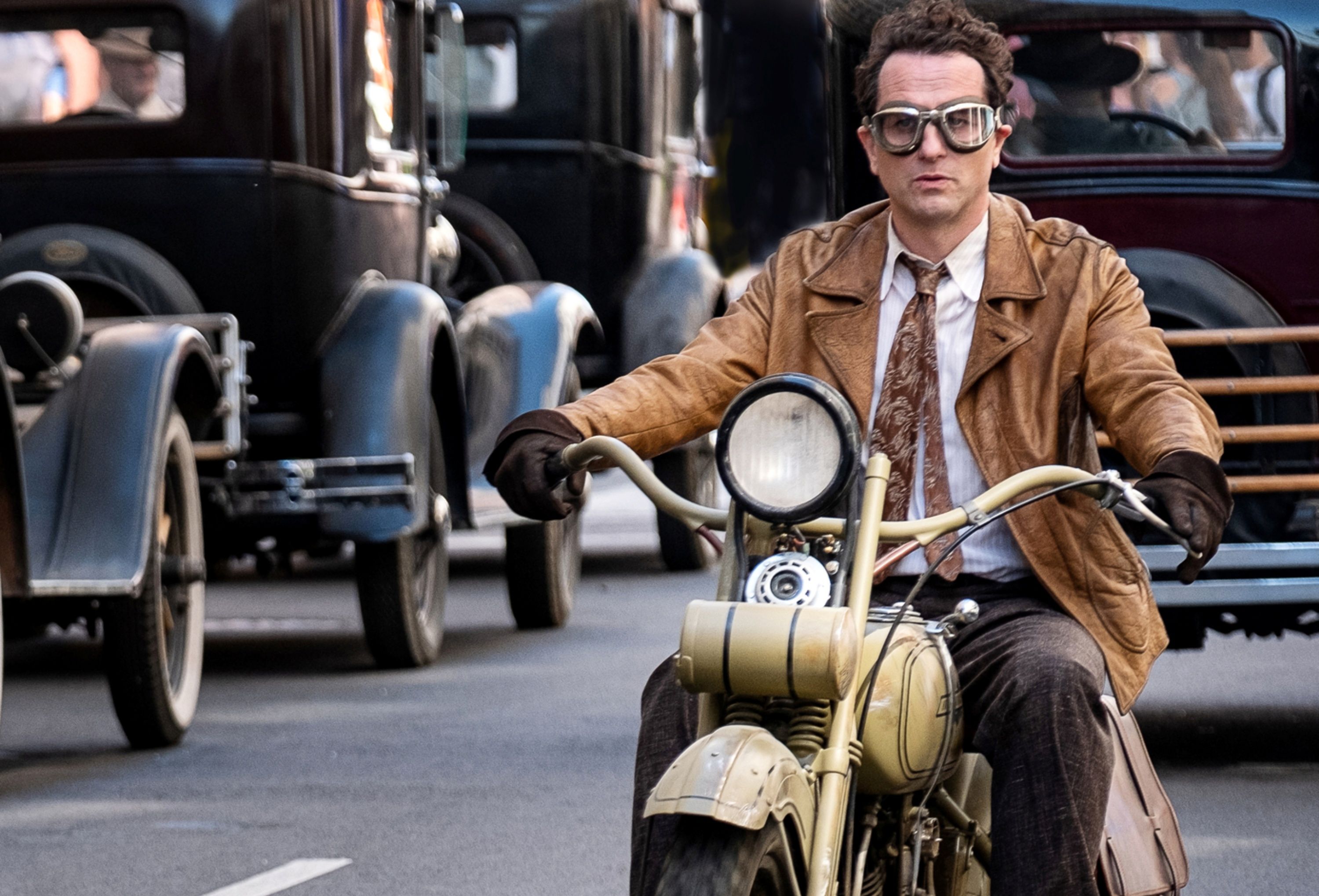In Season 2 of the HBO series Perry Mason, the height of the Great Depression sees the man himself (Matthew Rhys), along with assistant Della Street (Juliet Rylance) and ex-cop Paul Drake (Chris Chalk), on a new legal case, this time pitting the haves directly against the have nots. A high-profile murder case tests Perry Mason and pushes him to the edge, as he fights for a pair of brothers that have no one else on their side and everything stacked against them.
During this 1-on-1 interview with Collider, Rhys talked about how Season 2 took shape, how much the events of Season 1 still affect Perry Mason, the contrast between the wealth and the poverty of 1930s Los Angeles, how his character feels about the justice system, riding a period motorcycle, getting out on the racetrack, the importance of finding levity in dark times, and having to face the consequences of his actions.
Collider: After doing the first season, and then having new showrunners for Season 2, what were the conversations like, in figuring out what the new season would be, what it would explore, and how it would affect the characters? Looking at Season 1, what did you feel you did really well and wanted to carry over to Season 2?
MATTHEW RHYS: I tend to leave the writing to the writers, which I think is shrewd, on my behalf. We started with new writers and new showrunners for Season 2, and as you would imagine naturally would happen, they just came in with a fresh set of ideas and a new set of ideas, which ultimately can only serve a second season when you’re wondering how much to change it up. We didn’t want to replicate it. It was about, now that we have the audience, how do we keep them? So, they immediately came in with a new set of ideas that I thought were great, off the bat. They wanted to, not exactly do a 180, from the end of Season 1, but they wanted a turn, of sorts, so that you’re not coming back to that last image you had of Season 1, of all three in the office, where all is great, everyone has new suits and looks good, their names are on the door, and off we go, let’s have another trial. I can only speak for Perry, but you find him in a real crisis of faith about himself, about his capabilities, and about his qualifications in being there. He has this imposter syndrome that he’s suddenly been hit with, where he goes, “Actually, I don’t think I belong here.”
I actually really appreciated how, during the season, we see that last season’s case is still affecting Perry Mason. Have things turned out differently for him, after that case, than he expected? Did he think things might get easier, after that?
RHYS: I think so, naively or not. And I use that word naively, because it’s what brought him, in our origin story, to becoming a lawyer is that he sees this very clear-cut view of right and wrong. It’s quite black and white for him, and it’s the gray in between that trips him up kind of violently. He thinks, “That’s wrong, but I’m gonna do something about it. I’ll become a lawyer, if that’s what it takes, and I will try to do the right thing.” And then, as a result of doing the right thing, something left field and rather catastrophic happens, that shocks him to his core. He lived by that simple set of rules by saying, “I was doing the right thing, so how did that happen? That wasn’t meant to happen? Maybe I shouldn’t be doing this.” It presents and poses a number of questions that, for me playing him, were very interesting.
We really get to see the contrast between the wealthy and glamorous, and we get a look at the poverty in Los Angeles, at this time. Since someone always seems to get murdered when rich people and their money gets involved, what did you think of the case you got to explore for Season 2? Did you know what all of those beats would ultimately be, before you started shooting, or was some of it’s still evolving?
RHYS: One of the beauties of setting Perry Mason in the 1930s Los Angeles is that it was probably the only city in America that was gripped by the Depression, but that also had this enormous influx of money and was doing incredibly well. Enormous wealth and abject poverty lived cheek-by-jowl. That, as a setting for a television show, was incredible. As you say, when you have that much wealth living next to such poverty, there will be a meeting point that probably doesn’t end well, and it doesn’t this season. And yes, it did evolve. There were certain ideas they had that changed, as tends to happen sometimes. When you’re shooting, you go, “This is working well. Let’s run with that more. Let’s use that more.” So, it did evolve in that sense, but as a starting place, there was the flashpoint of wealth meets poverty. And also, one of the biggest themes this season was how the judicial system is different for wealthy people than it is for poor people or people of a different color.
After two difficult cases in a row now, how is Perry Mason feeling about justice, whether there is true justice, and who pays the biggest price?
RHYS: If there were to be a third season, it would be an interesting moment for Perry to reflect on the explosive way he became a trial lawyer, how he then dealt with that and the aftermath, and the sacrifices he had to go through, in order to do that again. For me, the hope that springs from Mason is that he makes a choice. He goes, “You can either walk away from this or you can try to work from within it, to do what’s right.” And in that moment, Mason being Mason goes, “I’m gonna stay and I’m gonna try to make things right, at whatever cost.” And it does come at a high cost for him. So, it would be interesting to see where he would go, as a lawyer, if there were to be a third season with him going, “I can’t put myself through that, every time there’s a trial, but I shall now try to work the system, in a reasonable way.”
Because he has to deal with the consequences of his actions, by the end of this season, how do you think that will change him? Do you think that will change him, or do you think it will just solidify what he already thought about things?
RHYS: I’m not sure. What I love about this show and this character is that it’s ever-evolving. At every turn, he’s going, “Oh, my God, I didn’t think that would happen. I wasn’t expecting that. Now, I have to do this.” So, he’s always evolving, as a human and a lawyer, at the same time. And there are revelations for him, along the way, like when Hamilton Burger says the line of the season, “There’s no such thing as justice, only the delusion of justice.” That gets Mason to his core and makes him go, “Hang on, if that’s true, then nothing is important.” And then, he makes a choice, “No, you do have to do something because, if there’s no hope, then there isn’t anything.” What I love about evolving with him is that you’re constantly learning with him about who he is and what he would be willing to do, in order to stay with the kernel of why he started this crazy journey, which was to do what’s right, in that moment when someone is having a great wrong.
One of the cool things about doing a TV series or a movie is the stuff that you get to do, that you wouldn’t normally ever be able to do. What was it like to get on a period motorbike, and have the full look with the goggles and the gloves?
RHYS: That was a dream come true. The first day, they brought out that motorcycle and it was operating as a 1930s Harley-Davidson. They started it, and it took so many weird things and it made so much noise that they went, “Okay, forget using it as a real motorcycle. Let’s give it to the action car guys and have them turn it into an electric motorbike in two weeks.” God bless them, it almost killed them, but it was a very souped up, very fast, electric bike. It split the camps of men who, when we were on location, would come and look at it and go, “Is this an original bike?” And you’d go, “Yes, it is.” Half of them would go, “Oh, my God, that’s amazing.” And the other half would go, “They’ve turned it into an electric bike. It’s an abomination and a true crime that they’ve ripped out the guts of an original Harley-Davidson.”
What was it like to be on the racetrack on a horse?
RHYS: That was another classic “be careful what you wish for” moment. The writers very generously and lovingly said, “What is it that you wanna do?” I said, “I’ve always ridden horses. I love horses. I’d love to do a scene riding horses.” So, there were a number of scenes where Mason was on horseback, which fits with Season 1, on the farm. And then, I was like, “Oh, my God, I’m gonna race at the Santa Anita racetrack. I’m gonna open a racehorse to a flat-out gallop.” The stunt coordinator went, “Of course, you’re not gonna do that. A stuntman does that. You’re gonna be on a little hobby horse on a low loader.” So, I’m on a fake horse, trying to make it look real. But in fairness, they get me on a rearing horse. There’s a moment when the horse rears, and I trained for that. That was a magic moment for me, training with a horse to do that.
Those are the period details that add a much-needed fun element to this show and the heaviness of the cases.
RHYS: You need those little pearls thrown in, to give moments of levity in this dark time.
Perry Mason airs on Monday nights on HBO and is available to stream at HBO Max.




